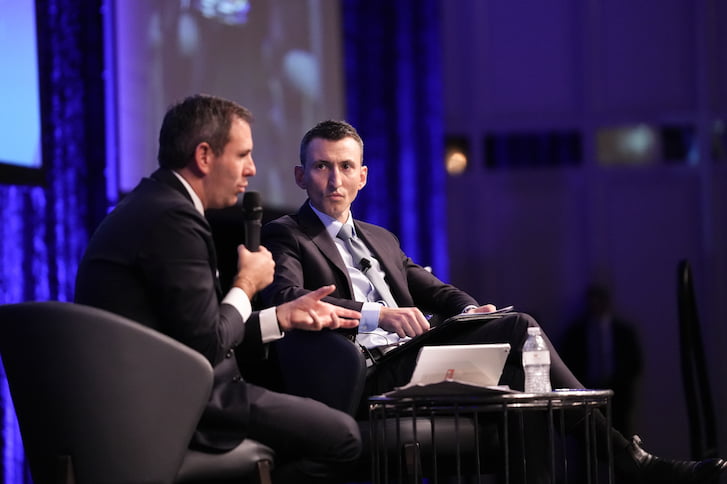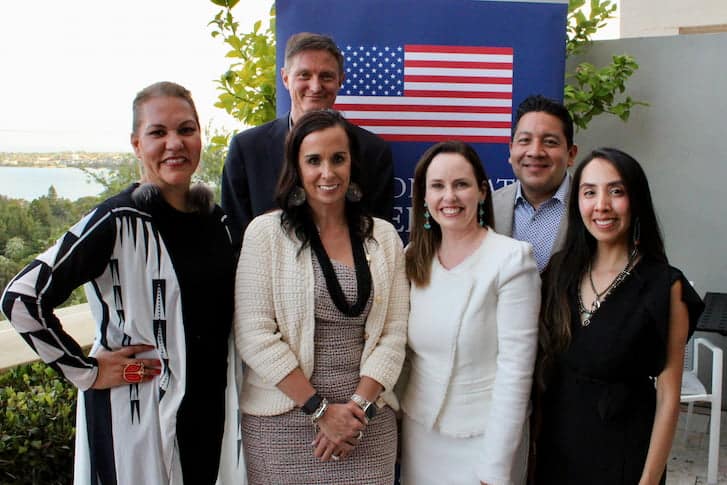Are you concerned about the Federal Government’s IR reforms? Get in touch with our workplace experts today by calling our Employee Relations Advice Centre on 9365 7660 or CCIWA Members can book a free consultation with one of our employment lawyers by emailing [email protected]

Federal Treasurer Jim Chalmers (left) with CCIWA’s Chief Economist Aaron Morey
Although the Federal Government has provided assurances that its most recent workplace relations reforms will not impede productivity, businesses remain deeply concerned about the anticipated rise in operational costs, legal complexity, and potential negative impact on productivity and profitability.
“Even if you don’t have an identical view to us on some of these changes, I hope you recognise that we at least are trying to engage with you properly to see if we can get, if not complete common ground across every issue, common ground across as many issues as we can,” Federal Treasurer the Hon Dr Jim Chalmers MP told CCIWA’s Business Luncheon this week.
During a Q&A at the Crown Towers lunch, CCIWA Chief Economist Aaron Morey questioned Chalmers on the business backlash of the industrial relations (IR) reforms. South32 has been the most recent critic of the Government’s reforms, saying it will probably harm Australia’s productivity and increase labour costs in Australia.
“Your Government has a big agenda in this space: multi-employer bargaining, limits for fixed-term contracts, restrictions on labour hire, redefining casuals,” Morey says.
“Some large resources companies have come out and said that this could threaten our competitive edge here in Australia, that universities, medical research institutes, sporting organisations like the AFL have warned that they face some impact on fixed-term contracts, in particular.
“Treasurer, do you accept that the rules around industrial relations do impact on the viability of projects and what can you point to in the Government’s IR agenda that makes us more competitive on the global stage?”
Chalmers says: “We want to see more and better agreements.
“We believe that if you get more and better agreements, you’re more likely to get more productive workplaces and a more productive economy.
“There’s not a unanimous view about industrial relations, and we try and acknowledge that.”
Chalmers says the Same Job, Same Pay policy is about closing a “labour hire loophole”.
“We don’t want to eliminate labour hire,” he says.
“We recognise that there is a role… but we don’t want labour hire to be used as a way to undercut the conditions of the permanent workforce.”
Chalmers acknowledges the existence of varying opinions on this area of the reforms.
“I’ve personally engaged with a number of you on it. Again, I accept not everyone’s got the same view,” he says.
“But what we’re trying to do is to recognise the legitimate role of labour hire.
“Some of the other ways that labour hire has been used, I think, and we think, collectively, is suboptimal, so we’re trying to address it.”
The Bill of the third round of reforms is set to be released to Parliament on September 4.
To keep up to date with the latest IR reforms and keep up with what CCIWA is doing for Members, click here, Changes to Workplace Laws — CCIWA.












